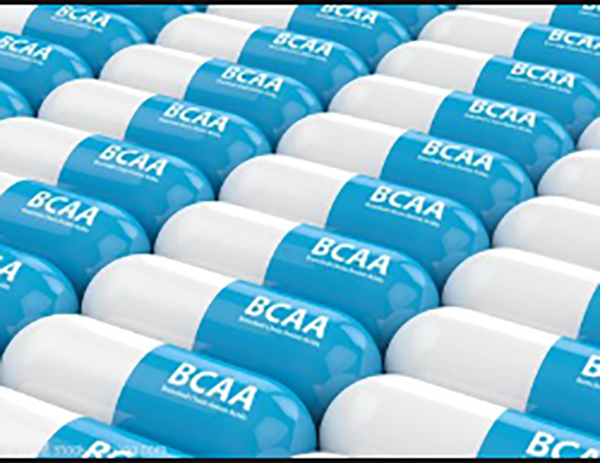High-quality BCAA 2:1:1, perfect for athletes seeking optimal muscle recovery
Product Description
BCAA, the full name is branched-chain Amino Acid, refers to the amino acids with Branched structure in the side Chain of three molecular structures, which are leucine, isoleucine and valine. Bcaas are part of the body's eight essential amino acids, but our bodies can't make them, which means we have to get them through food.


Technical Data Sheet

Function and Effects
★ Muscle Protein Synthesis (MPS):
BCAAs, particularly leucine, play a crucial role in stimulating muscle protein synthesis. Leucine activates the mTOR pathway, a key signaling pathway involved in the initiation of protein synthesis, promoting the growth and repair of muscle tissues.


★ Muscle Preservation during Exercise:
BCAAs can serve as an energy source during prolonged or intense exercise. When muscle glycogen levels are depleted, BCAAs can be oxidized to provide energy, helping to preserve muscle mass and reduce the breakdown of muscle proteins.
★ Reduction of Exercise-Induced Muscle Soreness:
BCAAs, especially leucine, may contribute to the reduction of muscle soreness and fatigue after strenuous exercise. This effect is attributed to their ability to attenuate muscle damage and inflammation, thereby facilitating quicker recovery.
★ Regulation of Blood Sugar Levels:
BCAAs, particularly leucine, play a role in insulin sensitivity and glucose homeostasis. They can help improve the body's ability to take up and utilize glucose, which is beneficial for individuals concerned with insulin resistance or metabolic disorders.
★ Enhancement of Endurance Performance:
BCAAs may contribute to improved endurance performance by reducing central fatigue. They compete with tryptophan for entry into the brain, thereby reducing the synthesis of serotonin, a neurotransmitter associated with fatigue.
★ Support for Weight Management:
BCAAs can be beneficial in weight management and body composition due to their role in preserving lean muscle mass. This can be particularly important during periods of caloric restriction or weight loss.


★ Liver Health:
BCAAs play a role in the health of the liver, supporting liver function and mitigating the progression of certain liver diseases. This is particularly relevant in conditions such as cirrhosis or non-alcoholic fatty liver disease (NAFLD).
Application Fields
★ Sports Nutrition and Athletic Performance:
BCAAs are widely utilized in sports nutrition to enhance athletic performance and support muscle growth. Athletes and fitness enthusiasts often incorporate BCAA supplements to promote muscle protein synthesis, reduce muscle fatigue, and accelerate recovery after intense exercise.
★ Clinical Nutrition and Medical Applications:
BCAAs find application in clinical nutrition, especially in medical conditions associated with muscle wasting, such as cancer cachexia, chronic obstructive pulmonary disease (COPD), and certain metabolic disorders. BCAAs may be prescribed to help mitigate muscle loss and improve overall nutritional status in these patients.

★ Weight Management and Metabolic Health:
BCAAs play a role in weight management and metabolic health. They are often included in dietary plans for individuals aiming to lose weight while preserving lean muscle mass. BCAAs, particularly leucine, contribute to satiety and may assist in maintaining a healthy body composition.
★ Liver Health and Hepatic Disorders:
BCAAs have been studied for their potential benefits in liver health. In conditions such as cirrhosis and non-alcoholic fatty liver disease (NAFLD), supplementation with BCAAs may help improve liver function and mitigate liver damage. BCAAs contribute to the synthesis of albumin and other proteins crucial for liver health.
Packaging
1kg -5kg
★ 1kg/aluminium foil bag, with two plastic bags inside.
☆ Gross Weight | 1 .5kg
☆ Size | ID 18cmxH27cm

25kg -1000kg
★ 25kg/fiber drum, with two plastic bags inside.
☆ Gross Weight | 28kg
☆ Size| ID42cmxH52cm
☆ Volume| 0.0625m3/Drum.

Large-Scale Warehousing

Transportation
We offer swift pickup/delivery service, with orders being dispatched on the same or next day for prompt availability. 
Our BCAA has obtained certification in compliance with the following standards, demonstrating its quality and safety:
★ ISO Certification
★ GMP Certification (Good Manufacturing Practice)
★ HACCP Certification (Hazard Analysis and Critical Control Points)
★ Kosher Certification
★ Halal Certification
★ FDA Registration (for products intended for the U.S. market)
Q: Can BCAAs be used in formulations for various sports nutrition products?
A: Absolutely. BCAAs are versatile and can be incorporated into a wide range of sports nutrition products, including protein powders, energy drinks, recovery supplements, and more, providing formulation flexibility for different applications.
Q: What is the ideal ratio of BCAAs in a sports nutrition product?
A: The optimal ratio is often considered to be 2:1:1 (leucine:isoleucine:valine), reflecting the naturally occurring ratio in muscle tissue. This ratio has been widely studied and is commonly used to maximize the benefits of BCAAs.


















